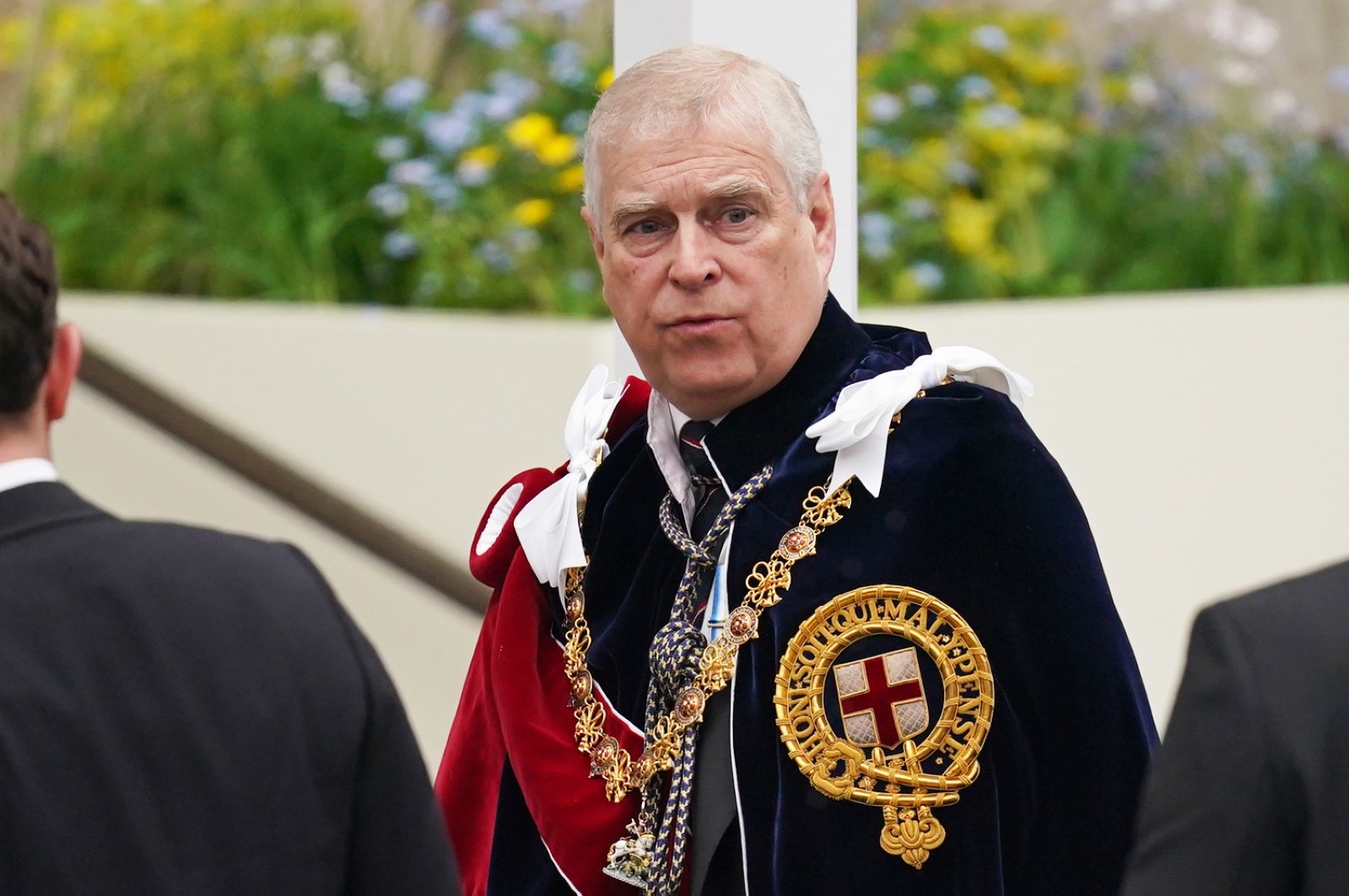
In 2019, Prince Andrew participated in a solo interview with the BBC program "Newsnight" to address his ties with Jeffrey Epstein, who had died in his jail cell three months prior. The Netflix film "Scoop" narrates the events leading up to this notorious interview.
The TV appearance would be such a public relations disaster that Andrew stepped down from royal duties shortly after that. For many viewers, he failed to give a persuasive refutation of the allegations made against him or to adequately explain his friendship with Epstein, a convicted sex offender who was being held on sex trafficking charges at the time of his death.
It has been a rocky year for the British monarchy and the comms teams employed to manage its messaging. This is another story that won't go away, much as the royal family may wish it would. In 2022, Andrew agreed to an estimated 12 million pound settlement with Virginia Giuffre, who alleged she was forced – via Epstein – to have sex with Andrew when she was a teenager. However, the "Newsnight" interview played a key role in forcing the institution's hand: Andrew had become too much of a liability.
In theory, the behind-the-scenes negotiations led by Sam McAlister, the "Newsnight" producer who landed the interview (and would later write a book about it), should be compelling. But there's nowhere near enough story to justify a movie-length depiction. It's as if someone pitched this as the U.K. version of "She Said," but none of it feels pressing or as high stakes as it should. Writing for Tatler ahead of the Netflix premiere, McAlister calls Andrew's interview a "masterclass in how to destroy your life." If only the movie itself felt as dramatic as that description.
Maybe British audiences will get something meaningful from this exercise – and read something between lines that non-British audiences won't – but either way, "Scoop" would have benefited from more rigorous introspection about the nation's strangely deferential relationship to its royal family, and why Andrew's situation has been so uniquely odd. Consider this past weekend: Despite his supposed ostracization, he was alongside his siblings this Easter, an annual tradition that is photographed and publicized and, therefore, doubles as palace PR. What are we meant to read into that? Is it a shrug – or worse, a middle finger – to the film? To anyone who takes the allegations seriously?
A movie like "Scoop" raises as many questions as it attempts to answer. Royals rarely agree to be grilled on camera. So why did Andrew – and why did Queen Elizabeth II allow it? Maybe it was hubris. Here was a man who moved through life seemingly without any consequences for his actions and a powerful parent who enabled that. How dare the media remind people of those times he consorted with Epstein? Surely, his powers of persuasion would be enough to put this to rest once and for all. As played by Rufus Sewell, the voice is too pinched and high, but he's believably sputtering, pompous, and foolish. This isn't a new insight, though.
According to "Scoop," McAlister gets the interview through some fairly basic tactics: She lays the groundwork with Andrew's top aide (a scared mouse played by Keeley Hawes), telling her: "You can't go 'no comment' on being friends with a pedophile and expect everyone to love you, no matter who you are."
As played by Billie Piper, Sam is styled as if she were an extra from "Working Girl," who wandered on set decades after the fact. The subtext is clear: She doesn't fit in with her posher colleagues at the BBC. But what's missing are frank observations – debates even – about Britain's class system and how that affects news coverage. The script is from Peter Moffat and Geoff Bussetil, and Moffat, in particular, has done sharper work in the past, particularly as the creator of the legal drama "Silk."
A major sticking point is that none of these characters have been developed into people who are interesting enough to carry what is ultimately an exceedingly thin story. The lack of intrigue becomes a glaring issue. The actual "Newsnight" interview conducted by a steely Emily Maitlis (played by Gillian Anderson) is available online in full. Recreating it serves no purpose; it's neither dramatically interesting nor does it plumb deeper insights into the media or the powerful people it covers.
Less than two months after the interview aired, it was reported that Andrew's aide had accepted an exit package "worth tens of thousands of pounds" (a detail not included here). And McAlister herself, who has since left her job at the BBC, told a British newspaper last year that she wrote the book, in part, because "if Netflix ever makes a future edition of 'The Crown' or a documentary on Prince Andrew, I want my role on the record." According to that same story, her former colleagues are "quietly seething at what they perceive to be McAlister taking the lion's share of credit."
It's McAlister's recent piece in Tatler that underscores where the movie goes wrong. "Fifteen feet," she writes. "That's how far I was from the back of his chair. I could see the soles of his shoes (hardly scuffed), the back of his head (new haircut), the bottoms of his trousers (tailored to a perfect length), the jacket (ill-fitting, remarkably) and the nervous movement of his left foot as it tap-tap-tapped, over and over, against the ornate carpet on the floor. The chair itself was also ornate, but it seemed very small with Prince Andrew sitting in it as he moved nervously from side to side, awaiting his fate."
None of these details add up to anything but a vaguely awe-struck moment and the ability to capture what "Newsnight" audiences already saw with their own eyes.
